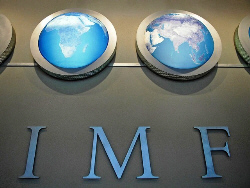Europe’s top officials closed ranks Thursday to demand that the IMF’s next leader be one of their own.
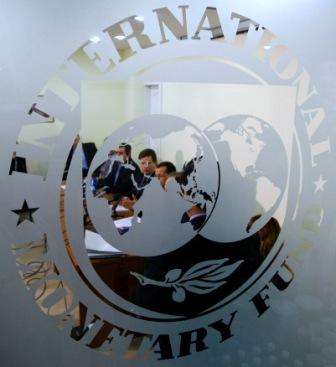 Europe’s top officials closed ranks Thursday to demand that the IMF’s next leader be one of their own, someone with enough technical expertise and political savvy to handle the continent’s relentless debt crisis.
Europe’s top officials closed ranks Thursday to demand that the IMF’s next leader be one of their own, someone with enough technical expertise and political savvy to handle the continent’s relentless debt crisis.Frenchman Dominique Strauss-Kahn, who has been widely praised for his leadership of the Intentional Monetary Fund and its involvement in solving Europe’s woes, resigned Wednesday to devote “all his energy” to fighting rape charges in New York.
The move heated up simmering debate over his successor, with Europe aggressively staking its traditional claim to the post even as fast-growing nations like China and Brazil say it’s time to break that monopoly and seek an IMF chief from a developing nation. The Washington, D.C-based organization is empowered to direct billions of dollars to stabilize the global economy.
Hours after Strauss-Kahn’s resignation, everyone from the European Commission to the German chancellor to the French finance minister – herself a potential candidate – said the replacement should come from Europe.
Not because of any tradition, they insisted, but because intimate knowledge of Europe’s debt crisis should be a critical element of any candidate’s portfolio.
“From a European point of view, it is essential that the appointment will be merit-based, where competence and economic and political experience play the key role,” said Olli Rehn, European Commissioner for Monetary and Economic Affairs.
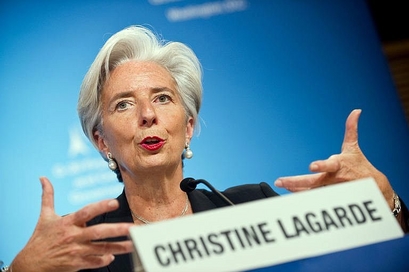 “And in this current juncture it is a merit if the person has quite solid knowledge of the European economy and decision making.”
“And in this current juncture it is a merit if the person has quite solid knowledge of the European economy and decision making.”France’s Finance Minister Christine Lagarde has in recent days been touted in many European capitals as a good choice. A sharp, articulate negotiator, she has a strong international reputation and impeccable English after living in the United States for many years.
In Berlin, German Chancellor Angela Merkel pushed for a quick decision on a successor to Strauss-Kahn and underlined her hopes for another European.
“It is of great significance, of course, that we find a quick solution,” she said in Berlin Thursday, without naming specific candidates.
The IMF’s executive board released a letter from Strauss-Kahn on Wednesday in which he denied the allegations against him but said he felt he must resign to protect his family and the IMF.
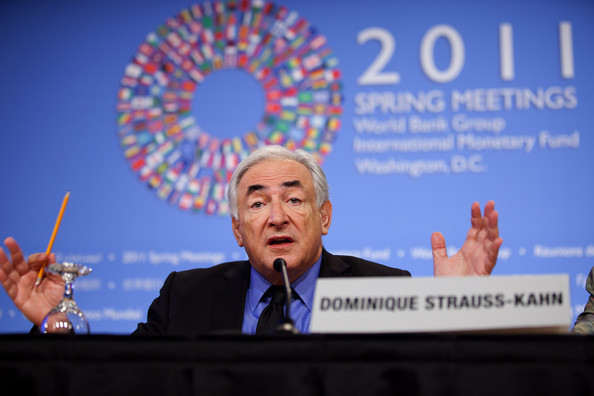 Strauss-Kahn is facing a bail hearing Thursday in New York that could have spelled the end of his leadership of the IMF anyway. He has been jailed in New York since Monday.
Strauss-Kahn is facing a bail hearing Thursday in New York that could have spelled the end of his leadership of the IMF anyway. He has been jailed in New York since Monday.The IMF’s statement said the process of choosing a new leader would begin, but in the meantime John Lipsky would remain its acting managing director.
Europeans have led the IMF since its inception after World War II. Americans have occupied both the No. 2 position at the IMF and the top post at its sister institution, the World Bank. The World Bank funds projects in developing countries.
Developing nations see Europe’s stranglehold on the position as increasingly out of touch with the world economy. China’s is now the world’s second largest economy. India’s and Brazil’s have cracked the top 10. Many emerging economies have become forces of financial stability, while rich countries have become weighed down by debt.
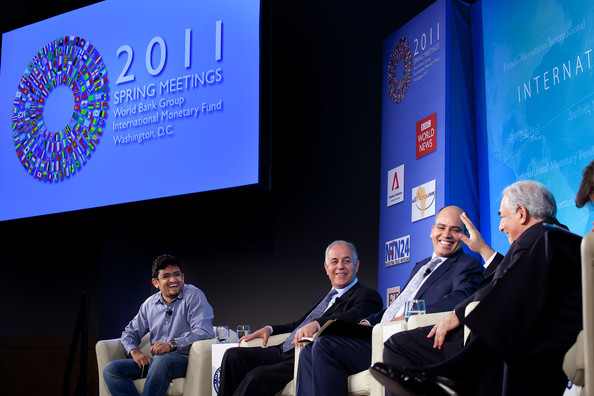 “We must establish meritocracy, so that the person leading the IMF is selected for their merits and not for being European,” Brazilian Finance Minister Guido Mantega said Wednesday. “You can have a competent European … but you can have a representative from an emerging nation who is competent as well.”
“We must establish meritocracy, so that the person leading the IMF is selected for their merits and not for being European,” Brazilian Finance Minister Guido Mantega said Wednesday. “You can have a competent European … but you can have a representative from an emerging nation who is competent as well.”China suggested it was time to shake things up at the IMF, with Foreign Ministry spokeswoman Jiang Yu saying the leadership “should be based on fairness, transparency and merit.”
The US has a major say in determining who will head the fund, in part because it holds the largest number of votes. The prevailing view among analysts and former Treasury officials appears to be that Washington would back a strong European candidate who could be approved in a smooth process.
Other potential European candidates include Germany’s former central bank chief, Axel Weber; the head of Europe’s bailout fund, Klaus Regling; and Peer Steinbrueck, a former German finance minister.
Candidates from elsewhere include Turkey’s former finance minister, Kemal Dervis; Singapore’s finance chief, Tharman Shanmugaratnam; and Indian economist Montek Singh Ahluwalia.
